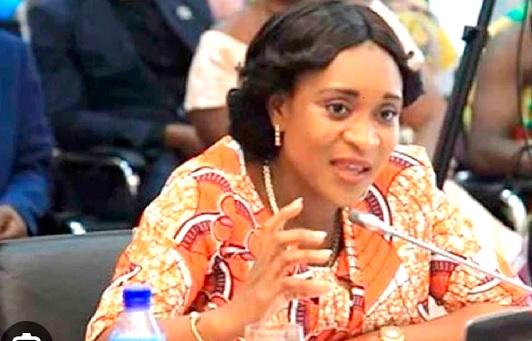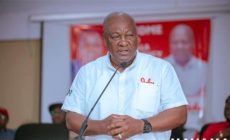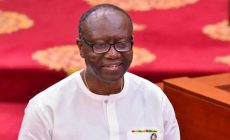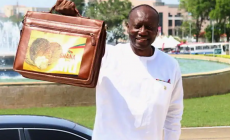Mid-year budget to focus on revenue measures – Govt urged to scrap COVID-19 levy
- Posted on
- Comment

The 2023 Mid-Year Budget Review will focus on revenue enhancement through both administrative and compliance measures, the Deputy Minister of Finance, Abena Osei-Asare, has hinted.
She said the budget review would also focus on fiscal consolidation and structural measures that were outlined under the International Monetary Fund (IMF) programme.
Speaking at an economic dialogue organised by Deloitte, she said the budget would drive stability and growth in the economy.
The Minister of Finance, Ken Ofori-Atta, will appear before Parliament on Tuesday, July 25 to address the country on how the economy had performed in the first half of the year and the projections for the rest of the year.
The minister will do so when he presents the Mid-Year Review of the Budget Statement and Economic Policy of the Government and Supplementary Estimate for the 2022 financial year.
This exercise is pursuant to the Public Financial Management Act, 2016 (Act 921).
Addressing structural weaknesses
Ms Osei-Asare said Ghanaians should expect that the mid-year budget would address structural weaknesses and build resilience in key areas such as expenditure commitment control and arrears clearance; debt management; financial stability and review of statutory funds.
She said it would also address the energy sector issues and some challenges in the cocoa sector.
“The budget will rejuvenate the growth agenda towards a more prioritised Growth Strategy.
“The strategy will make concerted efforts to accelerate growth by attracting significant new investment in areas such as agriculture, local manufacturing, tourism and digital transformation,” she stated.
She said it would also safeguard social protection for the vulnerable.
Scrap COVID-19 levy
Speaking to the Daily Graphic after the dialogue, the Vice Chair of the Association of Ghana Industries, Tema, Adobea Asiamah-Aboagye, said the AGI was looking forward to the scrapping of the COVID-19 levy in the mid-year budget.
The government in 2021 introduced the COVID-19 Health levy to support expenditures related to the COVID-19 pandemic.
Ms Asiamah-Aboagye said since COVID-19 is no longer a global pandemic, it was only right for the government to scrap that levy.
“If there was a global pandemic, now that it is no more existent, then as a matter of principle, the levy that was introduced to deal with it must also go off,” she stated.
She also urged the government to merge the straight levies and the VAT rate to take off the six per cent cost on businesses.
We cannot expect much
Also speaking in an interview, an Economist, Professor Godfred Bokpin, said the country could not expect much from the mid-year budget because of the ongoing IMF programme.
He, however, pointed out that there was so much stress on the balance sheets of the private sector and households and the mid-year budget must, therefore, consider this reality.
“We want to see the kind of adjustments, relief mechanisms and balancing act to situate the recovery within what is good for the private sector, households and the government.
“In the government’s attempt to restructure its balance sheet, this must not come at a great cost to the private sector and households,” he stated.
He said the country also needed a clearer picture of what this recovery was all about, stating that “What kind of recovery are we looking forward to”.
He noted that the recovery must address unemployment, food insecurity, protect the vulnerable and ensure job-rich growth.
Prof. Bokpin also reiterated calls for the revision of some of the taxes.
“The key thing I am expecting is that COVID-19 levy should go, e-levy should go and then also the government should merge the standard VAT rate of 15 per cent with the straight levies and peg it below 18 per cent,” he said.










 (Selorm) |
(Selorm) |  (Nana Kwesi)
(Nana Kwesi)